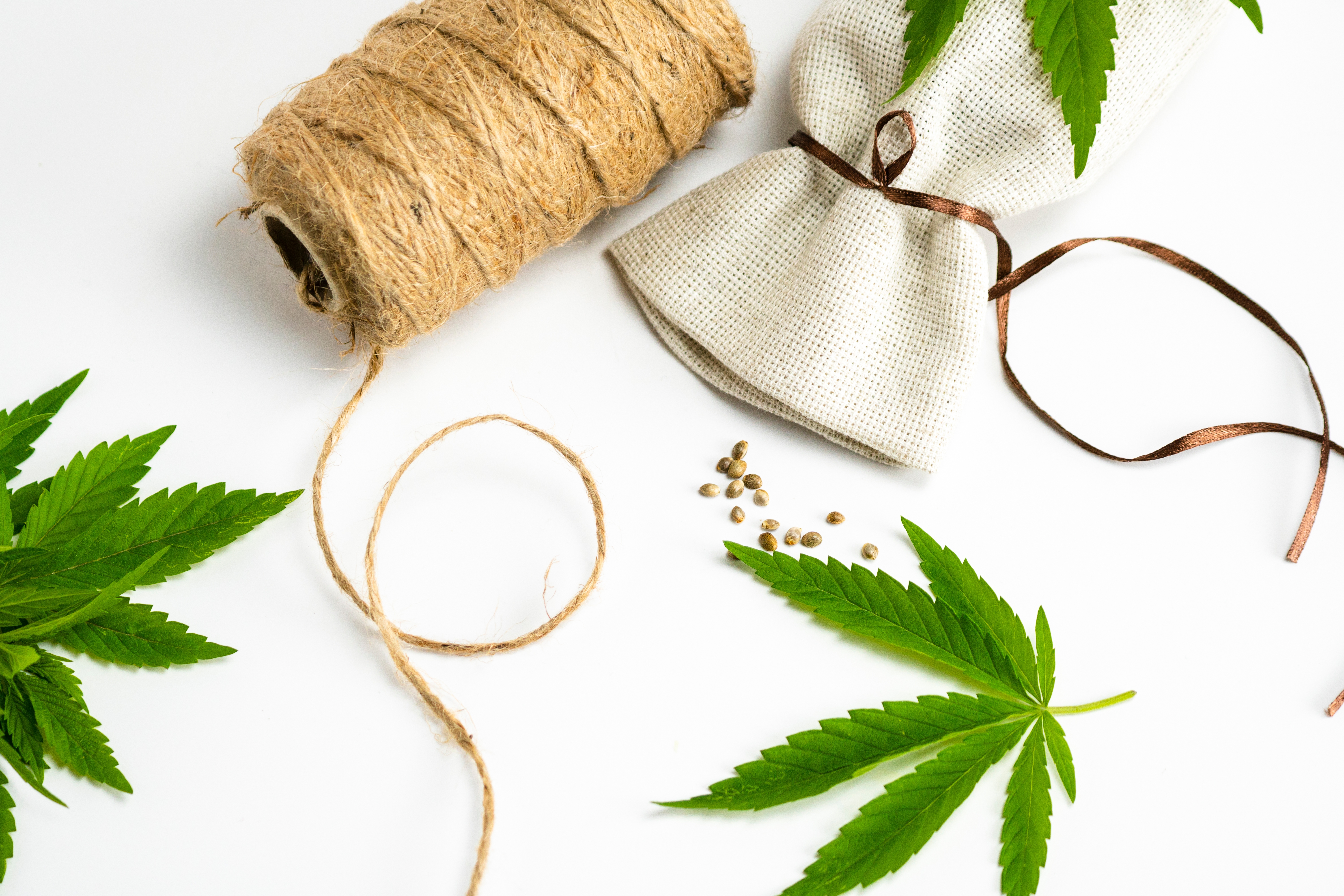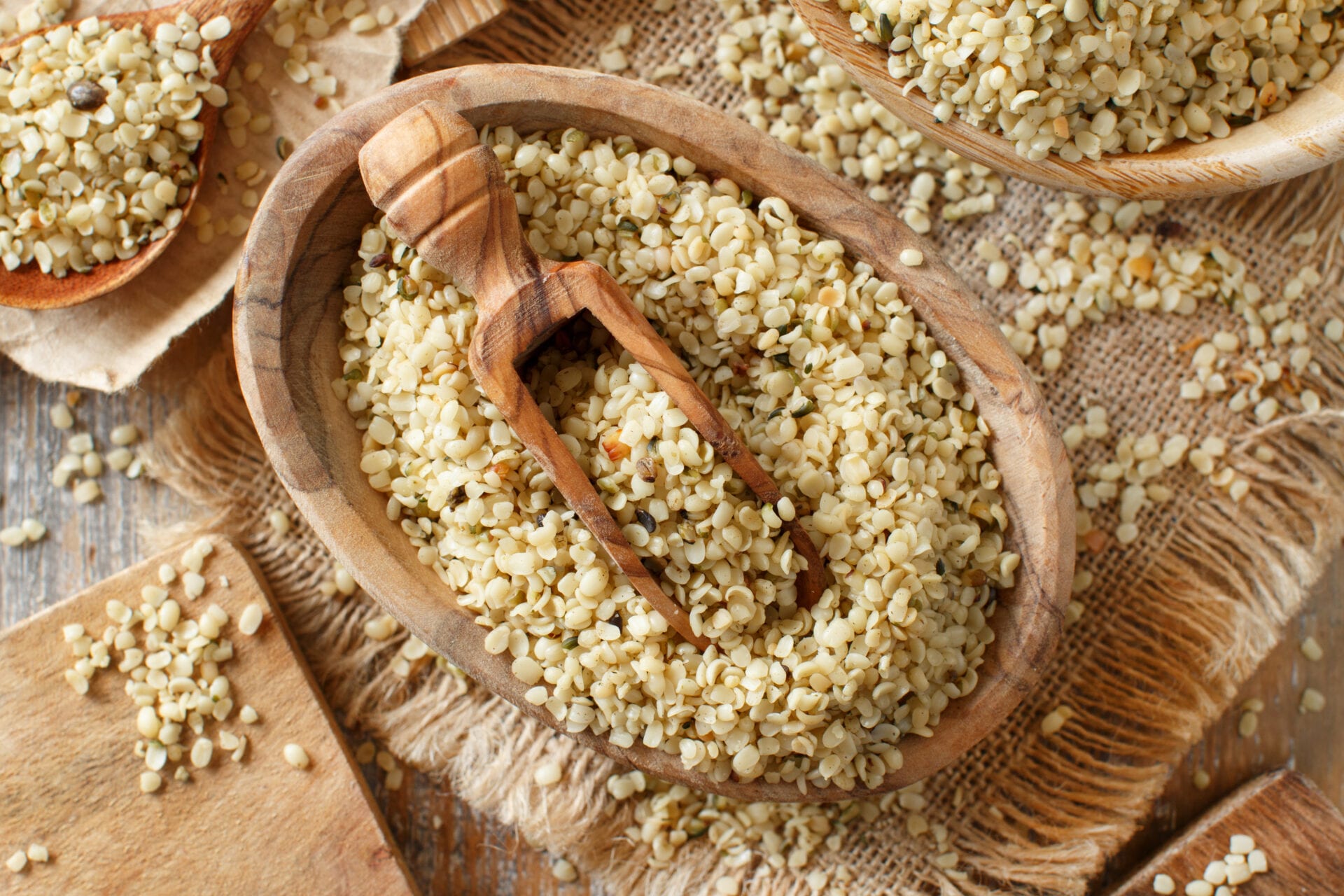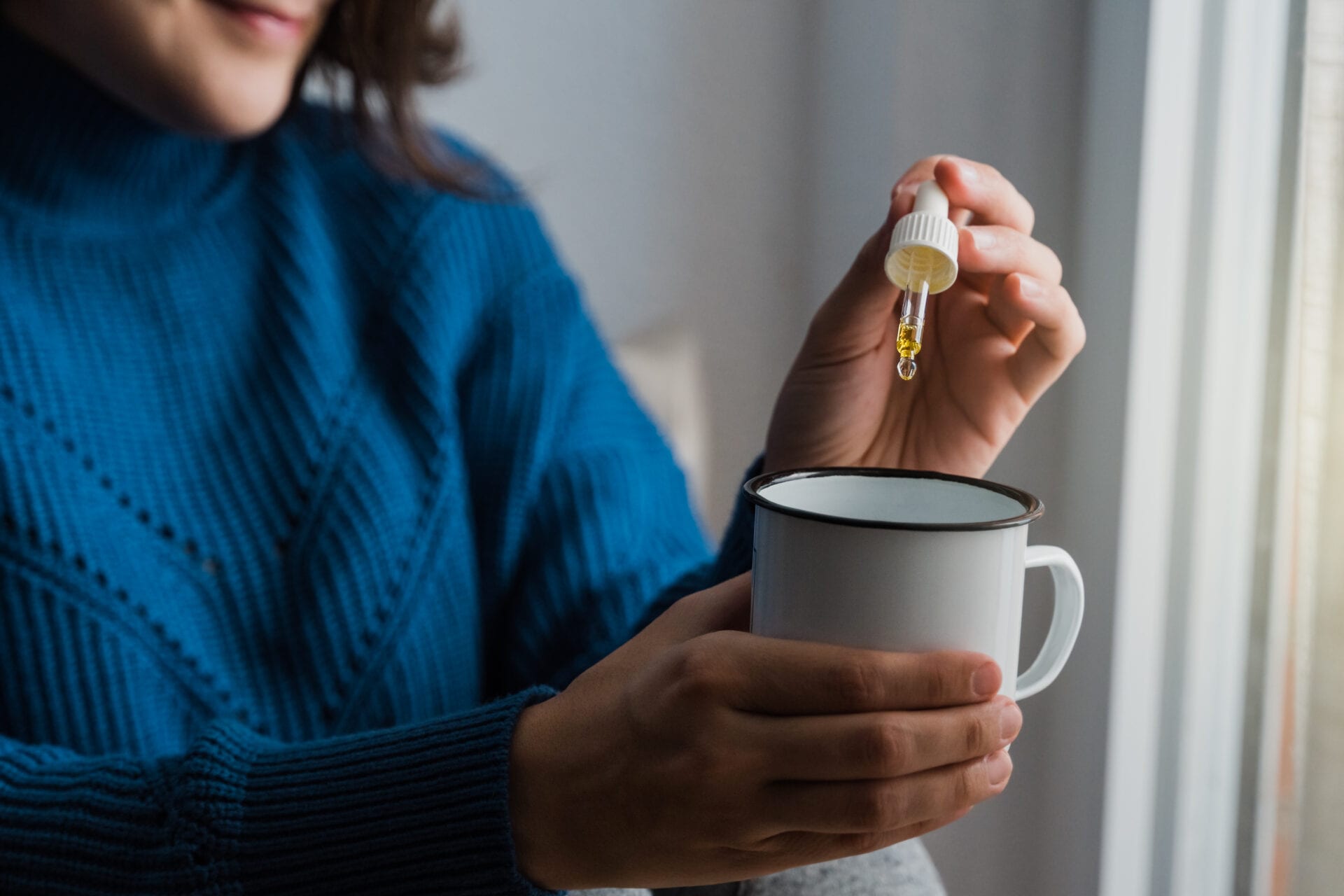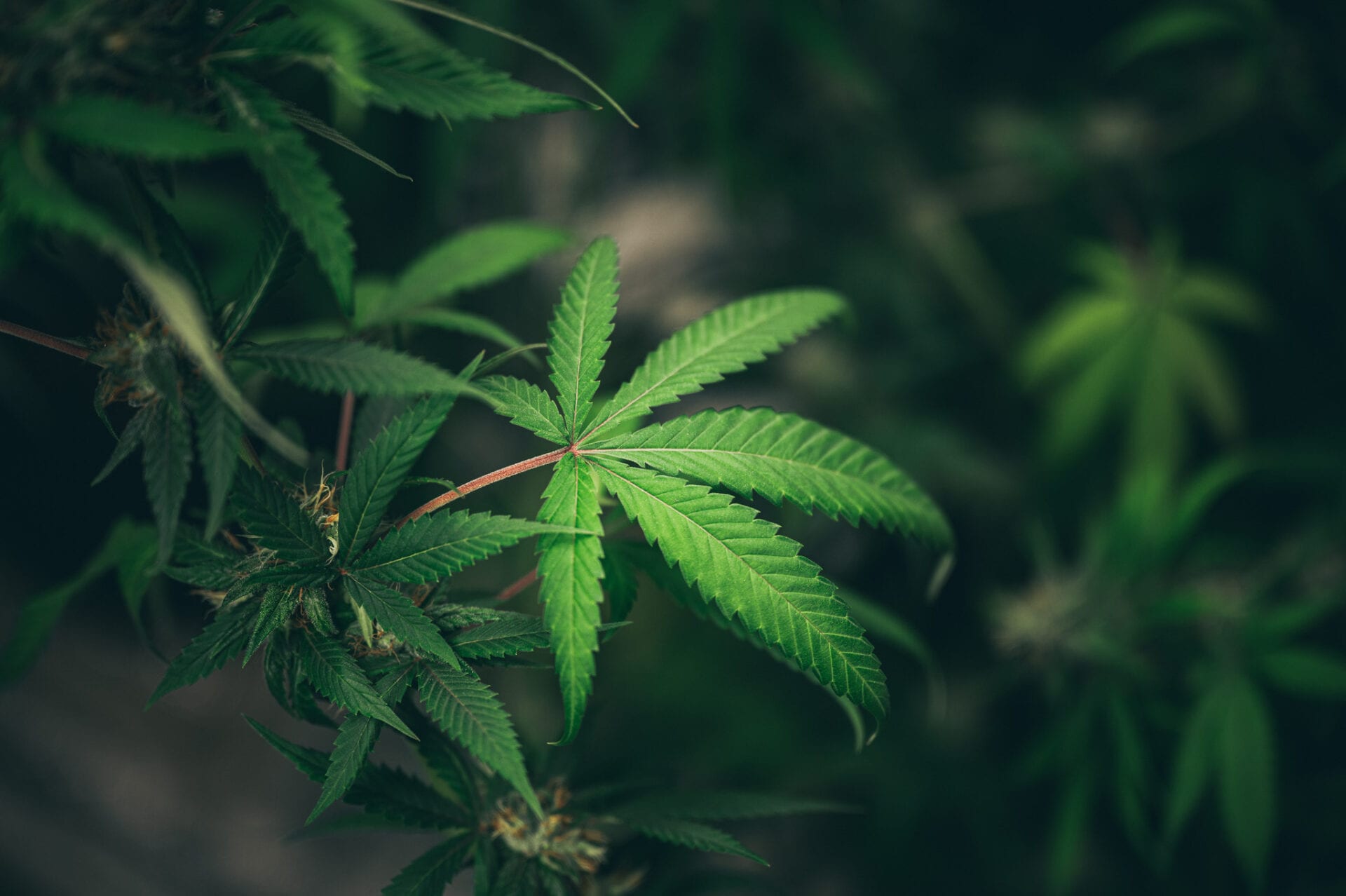The demand for natural, sustainable products has led to a global spike in the past few years and an increase in hemp cultivation. According to one research study, the global market for industrial hemp is estimated to be worth $36 billion in USD by 2026!
If you are new to hemp products, including hemp-derived cannabidiol (CBD), you may be wondering what is hemp? In this blog post, we’ll give you all the information you need about hemp and why it’s so beneficial — from how it differs from weed and can benefit your health to how it is grown and helps the environment!
1.) What is hemp?
Hemp, also referred to as industrial hemp, has been used across the globe for centuries. Originally, hemp was used by ancient Asian and European civilizations to make rope, fabric, paper, and other useful items. By the 1600s, the versatile plant made its debut in the United States and has since become a major source of income for farmers. It has also become well-known in today’s society for CBD from hemp products like oils, gummies, vape products, and even pet treats!
Oftentimes, the hemp plant is confused with marijuana but it’s important to recognize they do not bring about the same effects. While both contain tetrahydrocannabinol (THC), hemp only has trace amounts of THC, meaning it does not produce psychoactive effects when consumed.
One of the most noteworthy properties of hemp is the minimal maintenance it requires in order to grow. This is in part due to its environmental adaptability and naturally pest-resistant composition, which allows it to be grown without pesticides, herbicides, or fungicides.
Hemp can also benefit the earth through its ability to remediate soil and water after contamination. The hemp plant does this by absorbing pollutants, heavy metals, or chemicals that would typically harm other plants. Hemp also grows exceptionally fast and needs less water compared to other flora, making it an eco-conscious, time-saving option.
2.) What is hemp used for?
Now that we’ve answered what is hemp? you may be wondering where you can find hemp in your day-to-day life. Throughout history, hemp has been used as a source of vitamins, minerals, fiber, and healing. Beyond its health and medicinal uses, it is anticipated that hemp can be made into over 25,000 different products ranging from paper and textiles to soaps and beauty products. In recent years, hemp has become increasingly popular due to its many health benefits, including heart health, skincare, inflammation relief, and overall nutrition.

3.) Hemp benefits
The hemp plant is sought-after for its ability to be converted into various at-home products, including hemp seeds, hemp seed oil, and topical oils. Hemp seeds are often touted for their high content of protein (2-3 tbsps. = 11 grams of protein), fiber (for easy digestion) Vitamin E (serves as an antioxidant and protects cells), and mineral (including potassium, calcium, and iron).
In addition to these nutritious elements, hemp-derived products offer other health benefits, including:
Heart Health: Hemp seed oil contains a significant amount of healthy fats, including omega-3 and omega-6 fatty acids. Both are considered beneficial for heart health because they can reduce blood pressure, cholesterol, and triglyceride (fat) levels.
Skin Health: We all want healthy, glowing skin and the only way to achieve it is by taking care of it! One of the best products to add to your skincare routine is hemp seed oil. Hemp seed oil is a natural moisturizer that has been found to reduce the appearance of wrinkles and fine lines, help with dry skin conditions like eczema, and improve overall skin tone. It also contains gamma-linolenic acid (GLA), which is a fatty acid that has been shown to reduce inflammation and help those struggling with chronic conditions, such as psoriasis. This magical, anti-inflammatory oil can even reduce the severity of acne breakouts!
Skincare products made with hemp-derived CBD can also have similar or amplified effects. This is due to CBD’s interaction with the endocannabinoid system (ECS). The ECS is known for regulating many natural systems and responses in our bodies, including digestion, immune function, and inflammation. It also naturally produces cannabinoids similar to CBD and features CB1 and CB2 receptors, which CBD cannabinoids can successfully bond with. This is thought to boost the efficacy of the ECS, including its inflammatory responses, which can influence skin health.
PMS Relief: PMS (premenstrual syndrome) is a condition that affects women during the week or two weeks before their period. It can cause mood swings, irritability, and bloating. Some people also experience headaches, breast tenderness, joint pain, and fatigue. PMS symptoms are caused by hormonal changes in the body before menstruation begins.
We previously mentioned that gamma-linolenic acid can reduce inflammation. In addition, GLA has the ability to regulate hormones. These two unique properties of GLA are thought to support PMS relief.

4.) Hemp vs. Weed: Is there a difference?
Although hemp and weed are both from the Cannabis sativa L. plant species, the main differences between hemp vs. weed lie in their tetrahydrocannabinol (THC) content, cultivation methods, legality, and appearance.
Let’s break down each of these factors to determine what is hemp? And what is marijuana?
THC Content: THC is one of the most prominent cannabinoids in the cannabis plant and is known for its psychoactive effects. Marijuana is known to have a higher concentration of THC than hemp, making it a sought-after recreational drug that produces a “high” feeling. Hemp, on the other hand, has less than 0.3% THC, which means it won’t produce any psychoactive effects.
Growth Requirements: Hemp stalks are grown close together, can flourish in most climates, and require minimal care. In contrast, marijuana needs greater levels of attention. This is because weed must be grown in a warm, isolated area to avoid cross-contamination from other plant species.
Legal Status: In 2018, hemp-derived CBD became legal at the federal level with the passing of the Farm Bill. Due to the THC content in hemp vs. weed, this bill removed hemp-derived CBD from the list of Schedule I substances, making it legal in all 50 states. Recreational marijuana is currently legal in 17 states due to independent state laws.
Appearance: A hemp plant can grow to a towering 20 feet tall and is slender with pointed leaves. The marijuana plant is a shorter bush covered with spikey buds and flowering leaves, which is where the most THC is concentrated. Those who harvest weed rely on the female plants to produce the best quality buds due to their higher THC content and lack of seeds. Male marijuana plants are less desirable and often discarded because they do contain seeds. On the plus side, male plants are great for producing soft fibers used in clothing and other textile products.
5.) CBD vs. Hemp oil
CBD and hemp oil may seem similar, but they are actually quite different. CBD is a chemical compound found in the hemp plant that has been claimed to aid with inflammation, sleep, relaxation, and mood. In contrast, hemp oil is made from the seeds of the plant and doesn’t contain any cannabinoids. It is, however, full of nutritional value and can provide a number of health and wellness benefits!
The process for making CBD vs. hemp oil also differs. When it comes to CBD oil, the CBD compound is extracted from the leaves, flowers, and stalks of the hemp plant. As for hemp oil, the seeds, which are pressed into omega-rich oil, are the “golden eggs” of the plant.
Much like hemp, CBD is a rapidly growing industry with an overwhelming number of companies trying to make a name for themselves. While these companies will showcase a wealth of products — from tinctures and topicals to smokable products and edibles — that doesn’t always mean they are effective.
Before purchasing CBD, it is important to do some research on all of the ingredients that go into the product and the extraction method used. You may be surprised to find that many companies cut corners to cut costs. Ultimately, this results in a lack of purity and potency, which leaves customers dissatisfied and without expected results.
Because both CBD oil and hemp oil can be used to support specific needs, you might be wondering if you can take them together? The answer: yes, you can! Because CBD oil and hemp oil both lack THC (less than 0.3%), it is perfectly safe to use them in conjunction as they won’t cause any psychoactive effects.

What is hemp? The bottom line
A versatile agricultural resource, the hemp plant has the potential to be grown organically and refined into a myriad of products, including clothing, paper, and CBD oil. Hemp is also one of the most eco-friendly and sustainable materials on earth, as it can grow with little water and care, in a variety of environments, and without the use of pesticides. Thanks to these perks, the hemp industry has exploded in recent years.
The use of CBD oil from hemp has also skyrocketed in popularity as it can be ingested, applied topically, and inhaled. While CBD can support a variety of needs, it’s always important to check the source and ensure they are transparent about their production methods.
Although there’s a lot to unpack about hemp, we hope you found this to be a useful tool for answering the question what is hemp? and the many uses it carries.
